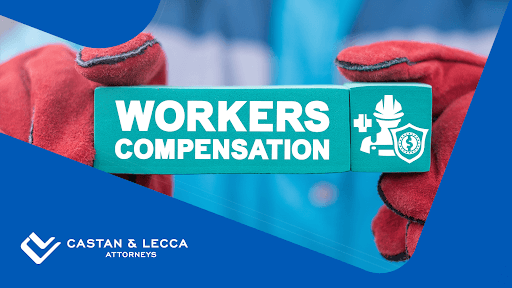
Regardless of all of the precautions and safety measures in place, sometimes work-related accidents can still occur. According to the Bureau of Labor Statistics, total employer compensation costs for civilian workers averaged $42.48 per hour worked in December 2022.
As an employee, you should know that there are structures in place that ensure you are covered if you happen to be injured in a work accident.
If you suffer a burn, fracture or concussion on the job during the ordinary course of work, then you may be entitled to compensation through the workers’ compensation program. Furthermore, if there is evidence that there was no way to avoid the accident and someone else caused the injury, it is possible to still be eligible for benefits. But there are certain injuries that are not covered by the program.
In this blog, we will review a few injuries that are not eligible for workers’ compensation:
- Commuting to Work
- Injuries from Intentional Fighting
- Intentional Injuries
- Injuries from Drug or Alcohol Use
Commuting to Work
Workers’ compensation payments (which are paid out by your employer) occur when you’ve sustained an injury during the course of your job. Injuries sustained in the workplace are largely covered.
While commuting means you are intending to go to work, you’re still not technically at work. Commuting itself is not a part of your job, which means if you are injured in a car accident during this time, workers’ compensation may not apply to your situation.
It’s important to know that if you leave your job site to go on a break or go get food for lunch and sustain an injury during this time, the injury may not be covered by workers’ compensation protection—even if you were on the clock. However, if an injury occurs in the break room or cafeteria, you may be eligible for benefits.
Car accident injuries sustained while you are trying to get to your workplace do not fall under injuries eligible for workers’ compensation. However, if you use a car or drive as a specific part of your job, you might be eligible. It’s best to get a free consultation from a trusted, experienced legal team like Castan & Lecca so that they can review your case. They’ll be able to tell you exactly what you can expect.
Injuries from Intentional Fighting
If you engage in a fight while you are at work, any injuries sustained from that altercation may not be covered by workers’ compensation. Since fights occur outside of ordinary work duties, injuries from them are not covered unless it was directly involved with a specific work issue.
However, if ongoing fighting or physical altercations occur and the employer neglects to take responsibility for these issues, you may be eligible to receive compensation. Each case is different, so be sure to review the particulars of your situation with a trusted attorney like those at Castan & Lecca.
Intentional Injuries
While accidents do happen and workers are compensated for their injuries sustained at work, sometimes employees engage in dishonest practices. Workers compensation fraud could include employees intentionally trying to injure themselves so that they can get a pay out.
This dishonorable behavior is not at all eligible for workers’ compensation benefits. Every employee should know that each workers’ compensation case is investigated by several different parties–including the state board. If the nature of the case reveals an intentional injury has occurred, the injured employee will most certainly not receive benefits.
Injuries from Drug or Alcohol Use
If an employee is under the influence of alcohol or drugs while injured at work, the injury that might occur will not be covered by workers’ compensation. The employee will be deemed as engaging in reckless behavior that not only endangers themselves but their fellow coworkers around them.
If you are driving while impaired on drugs or alcohol, you may not be eligible for workers’ compensation. Since DUIs can occur due to the person’s own decisions and out of the scope of your work, your employer will not cover it.
It’s important to stay aware of your own behavior while commuting to work and while at work. This is especially true if the nature of your work includes operation of heavy machinery. Workers owe it to themselves and those around them to stay sober and safe during–and before–work hours.
What to Know About Workers’ Comp
So what can you do if you’ve been injured during the course of your work duties? You may be eligible for workers’ compensation benefits, which will be paid out by your employer. But there are a few things you should know:
- Get help immediately. If you’ve been injured on the job, seek medical help immediately so that your injuries can be treated.
- Let your employer know. The sooner you let your employer know of your injury, the sooner you may be able to receive workers’ compensation.
- Document your injury. If you’re able, be sure to document everything about the nature of the accident and injury. This includes getting witness statements and evidence. It also includes keeping track of medical bills and documentation.
- Be aware of filing deadlines. You should file your claim with the Georgia Workers’ Compensation Board as soon as possible so that you do not miss deadlines and delay your benefits.
An experienced legal team can help you ensure that your benefits get to you as quickly as possible. Speak to us today.
The Takeaway
Workers’ compensation can be a lifeline to those injured on the job. But many times, certain injuries are not eligible for benefits. It’s important for employees to stay informed about their rights and which injuries fall under workers’ compensation.
If you’ve been injured at work, you should know your options and what is available to you. Speak to us today and get a free consultation. We’re ready to hear your story.











